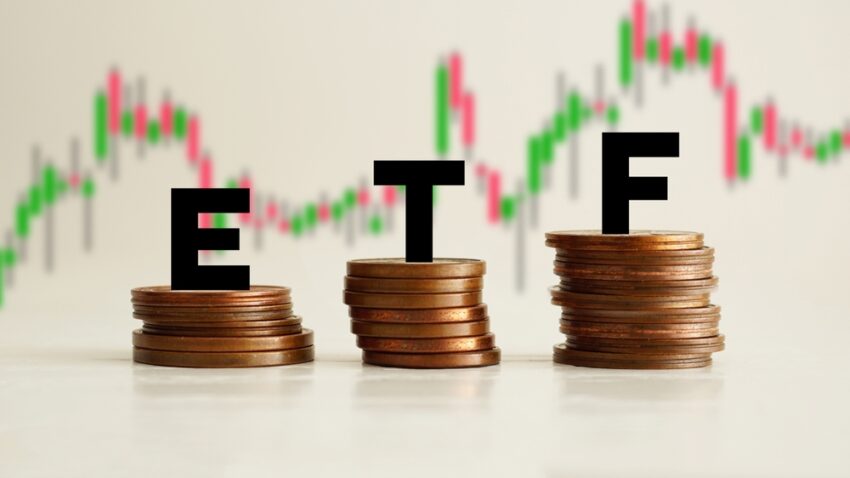The Bitcoin price remains range-bound after attempts to test the 110,000 price level in the mid-Jan rally. Ethereum has witnessed a sustained downtrend to surrender gains attained during its December peak.
Amidst the uncertain spell, the crypto market suffered a shocker following the $1.46 billion exploit of the Bybit crypto exchange by the state-backed Lazarus Group.
The uncertainty has not deterred Wall Street Goldman Sachs from diving into the digital assets sector. The US-based bank acquired Bitcoin and Ethereum exchange-traded funds (ETFs) valued at $2 billion.
JP Morgan Modest Investment in ETFs
The acquisition is unsurprising as Goldman Sachs joins other Wall Street titans, including JP Morgan, who have sought exposure to BTC and ETH-based products.
Unlike the modest approach by JPMorgan l, Goldman Sachs has recently scaled its investment in the Bitcoin ETFs to headline the substantial participation by institutions within the crypto market.
The investments coincide with a period when the broader digital assets sector is witnessing the first significant outflows. This highlights the complex dynamics that play out within the investment landscape.
Global largest bank, JPMorgan Chase, holds Bitcoin ETFs valued at $984,000 in Bitcoin ETFs. This represents a 30% surge from its investment back in May last year.
A look into JP Morgan’s portfolio reveals a diversified scheme that includes Bitwise, Fidelity, Grayscale, ProShares and BlackRock-issued ETFs.
Huge Bet on Bitcoin ETFs
JP Morgan runs a diversified investment with multiple funds involved, including ProShares, BlackRock, Fidelity, Grayscale, and Bitwise. Despite the spread out investment, the amount is mild compared to the huge bet by Gold Sachs that dwarfs JP Morgan’s over $220,000 additional investment in recent months.
Besides Bitcoin ETF holdings, JPMorgan has another $32,300 allocated towards ETH ETFs. The allocation, though modest, captures a diversified investment in Grayscale, BlackRock, and Fidelity offerings.
Goldman Sachs triumphs JP Morgan as it has made a larger move to hold over $1.27 billion in BlackRock Bitcoin ETF and another $288 million in Fidelity. The positions account for an 88% increase in the bank’s ETF holdings in BlackRock and 105% up in Fidelity’s ETF relative to the Q4 last year.
Record Bitcoin ETFs Outflow
The investments by US-leading banks coincide with the broader crypto market navigating huge outflows. In the week ending Feb 14, investors took $415 million from crypto-based investment products, a substantial amount of this being Bitcoin-based products. Notably, spot ETFs bled the most with $430 million in withdrawals.
The recent market movement is linked to the pronouncement by the Federal chair, Jerome Powell, regarding the interest rate policy. He reiterated the need to avoid rushed moves to lower the interest rates, necessitating investors to reassess their projections as constrictory monetary policy becomes effective.
Meanwhile, the US-listed spot BTC ETFs suffered the largest-ever 14-day outflow as ongoing US-China trade tensions pressured investor sentiment. Sosovalue data shows the spot BTC ETFs have suffered $1.14 billion in cumulative net outflow in two weeks leading up to Friday, Feb 21.
The sell-off is the highest two-week period of withdrawals since the Bitcoin ETFs debut on Jan 11 last year.
The selling surpassed the second-largest spell outflows witnessed in 14 days on June 21 last year. The Bitcoin ETFs bled $1.12 billion while Bitcoin changed hands at $64 000.
US-China Trade Tensions to Blame?
RedStone chief operating executive Marcin Kazmierczak considers the ETF lows a reliable indicator of the ongoing Bitcoin sentiment among the firms undertaking asset management. The co-founder of the blockchain oracle solutions firm singled out the long-term acquisition of BTC ETFs, portraying a more accurate picture.
Despite the two-week outflow, Marcin noted that the monthly timeframe cannot offer the full picture. He elaborated that ETFs are long-term investment vehicles; hence, a six-month or annual period would offer a meaningful perspective of the flows.
Marcin notes that zooming out shows the US-based Bitcoin ETFs have overwhelmingly net inflows following the optimism by holders in the longer term.
The record two-week sell-off arises largely from the US-China trade tensions following the newly introduced import tariffs. However, investors are keen on US President Donald Trump’s oncoming meeting with Chinese President Xi Jinping as they aim to resolve trade tensions.

